Before we dig further into methylcobalamin vs cyanocobalamin and look at the science, let's just briefly cover why B12 is so important.
In a nutshell: B12 keeps your nerves and red blood cells healthy, and takes responsibility for the smooth functioning of many critical body processes. B12 also helps with digestion and heart health.
Deficiency is serious and can lead to digestive disorders and an increased risk of heart disease.
- The National Institute of Health’s (NIH) Dietary Office estimates that between 1.5–15 percent of U.S. citizens are B12 deficient.
- The American Journal of Clinical Nutrition suggests this number might be up to 39 percent of the population suffering vitamin B12 deficiency.
So whether meat eater, vegetarian or vegan, everyone could both do with more B12 and should supplement.
The environment we live in, the food we eat and the water we drink has become highly sanitized. This means we aren't exposed to the B12-making bacteria we need to meet our daily requirements. Even livestock feed is supplemented with B12 because it grazes on unnatural terrain and is fed an unnatural diet.
Fortunately, because B12 is really easy to produce, many foods are fortified and supplementation is inexpensive and easy.
But which type of B12 should you take?
Let's find out:
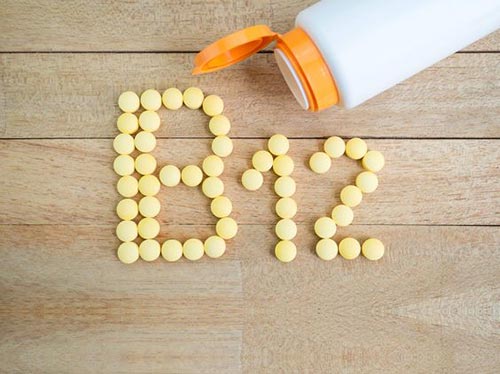
The 4 Different Forms of B12
Let's start by understanding the 4 different forms of B12. The language here is a little technical, but it's important to distinguish between each so that you understand the other sections of this post.
There are four forms of vitamin B12, differentiated by the side group attached to the cobalamin molecule:
- Adenosylcobalamin (AdoCbl)
- Cyanocobalamin (CNCbl)
- Hydroxocobalamin (HOCbl)
- Methylcobalamin (MeCbl)
- Methylcobalamin and Adenosylcobalamin are co-enzymes and the body requires each of them for different processes.
- Cyanocobalamin is the form most commonly found in supplements and fortified foods. It is considered the most stable because the side group, cyanide, has the strongest attraction to the cobalamin molecule. It also keeps better in extreme conditions like high temperatures.
- Hydroxocobalamin is the form of B12 typically found in food. There are not many oral forms for people to take and it is normally injected in B12 shots. It is not recommended to be taken orally as the he hydroxyl side group has the least attraction to the cobalamin molecule.
- Adenosylcobalamin's official name is 5′-deoxy-5′-adenosylcobalamin. It's also known as dibencozide, cobamamide, and cobinamide.
For the purpose of this article, the two forms of B12 that we are concerned with are methylcobalamin and cyanocobalamin.
These are the types generally found in supplements. Cyanocobalamin is widely found in fortified foods, too.
Four forms of B12. The two forms typically found in pills, sprays and drops are methylcobalamin (MeCbl) and cyanocobalamin (CNCbl). Some supplements combine the two natural, active co-enzyme forms methylcobalamin (MeCbl) and adenosylcobalamin (AdoCbl)
Methylcobalamin Vs Cyanocobalamin
Cyanocobalamin and methylcobalamin are very similar. Both contain a cobalt ion surrounded by a corrin ring.
However, each has a different molecule attached to the cobalt ion.
Methylcobalamin contains a methyl group (carbon and hydrogen), while cyanocobalamin has a cyanide group.
To help you remember the difference, just think ‘cy' for cyanide; that's cyanocobalamin.
Cyanide is a poison and isn’t something humans should consume. That said, we ingest cyanide in very small amounts from foods like spinach and almonds. It is also found in environmental pollutants.
In short, we already have regular exposure to small amounts of cyanide anyway. Despite this, it is still toxic.
Unless you are a smoker and your body simply can't cope with any more cyanide, the amount of cyanide released in the conversion process of taking cyanocobalamin isn’t thought to be harmful enough to cause any damage.
However, the conversion process may still be problematic, as this paper explains:
Although the amount of cyanide is considered toxicologically insignificant, humans must remove and detoxify the cyanide molecule, reduce the cobalamin to its usable +1 oxidation state, and then enzymatically convert the cobalamin into one of two metabolically active coenzyme forms. Nutritional inadequacies, enzyme defects, and pathological changes to tissues can all contribute to a reduced ability of the body to accomplish the synthesis of the active forms of vitamin B12 from CN-Cbl (Cyanocobalamin).[1]
In short: if you're health isn't that good to begin with, your cobalamin conversion rate may not be optimal.
Commercial cyanocobalamin exists because after creating hydroxocobalamin (from bacteria), some cobalamins bind to cyanide during the charcoal filtration process. That's what they use to make the cyanocobalamin.
Cyanocobalamin is synthesized in laboratories and is not harbored naturally in any living organism.
The majority of the B12 circulating in the blood is in the methyl form. So if you take the cyano form, before it can be properly utilized by the body, it has to be stripped of its cyano group, which takes some time – up to 48 hours.
Methylcobalamin B12 doesn't have to use any of the body's resources to convert it into the coenzyme form. There's no toxic waste to deal with.
On the face on it methylcobalamin sounds like the best choice. But it isn't that simple. We need to look at the science behind absorption rates and conversion to understand which form of B12 is better.
For example: You might be taking way more than the RDA for B12, but if your absorption rate is low, you still might not be getting enough. Some people may absorb different forms of B12 better than others, which is why anyone can suffer from low B12, meat eater or vegan.
✓ Click to check Best Prices for B12 on Amazon
Methylcobalamin MeCbl is a natural form of B12. Cyanocobalamin (CNCbl) is a synthetic form. The toxic effect of CNCbl is insignificant but in some this may reduce the ability of synthesis to the active forms of B12. Utilization is also slower.
MeCbl & CNCbl B12 Conversion
Here's where things get a little technical, so pay close attention here.
You see, methylcobalamin is not the only active form of B12. There are two active forms. You may remember we mentioned the other active form in the introduction; it's called adenosylcobalamin.
Adenosylcobalamin, like methylcobalamin, is essential to many aspects of your health: It’s involved in the metabolism of fats and amino acids, as well as the formation of myelin, which protects your nerves.
If you are deficient in either form of vitamin B12, it can increase your risk of neurological issues.
When you take cyanocobalamin, it can be converted to both of the active forms of vitamin B12, methylcobalamin and adenosylcobalamin. Good news.
However, there's a lot of misleading literature online that says methylcobalamin can't convert to adenosylcobalamin.
If this were the case, it would be problematic, because we need both forms for B12 health. It would also make 50% of the B12 supplements on the market useless!
Don't worry though. The two do inter-convert.
As this study showed…
A study on 3 vegans with elevated urinary MMA levels who were treated with 1/2 to 1 sublingual MeCbl tablet, 2 times/day for 3 weeks. Correspondence with the author (March 21, 2002) verified that these tablets contained 1,000 µg MeCbl each. Two of the subjects’ urinary MMA normalized while the remaining subject’s stayed slightly elevated at 4.1 µg/mg creatinine (normal is < 4.0 µg/mg creatinine).
Thus, at a rate of 1,000-2,000 µg/day, MeCbl appears to be absorbed at a high enough rate to improve B12 status in some vegans. Additionally, this indicates that the MeCbl was converted to AdoCbl for use in the MMA pathway. [2]
However, if you have a deficiency, research suggests that a combination of MeCbl and AdCbl would be optimal. It also states that oral supplementation is is good enough.
Thereby, it is important to treat vitamin B12 deficiency with a combination of MeCbl and AdCbl or hydroxocobalamin or Cbl. Regarding the route, it has been proved that the oral route is comparable to the intramuscular route for rectifying vitamin B12 deficiency.
You might be thinking at this point that surely it is more effective to take the more natural forms of B12, rather than the synthetic cyanocobalamin form. That's not necessarily the case.
The paper suggests that people do not benefit more from the co-enzyme forms because all forms, except injected HOCbl, must have their side groups stripped by the target cell before the necessary side group is added for the co-enzyme form needed.
Here's an excerpt from the study:
Currently, we do not have sufficient evidence to suggest that the benefits of using MeCbl or AdoCbl override that of using CNCbl or HOCbl in terms of bioavailability, biochemical effects, or clinical efficacy. There is uncertainty regarding the claimed superior role of [B12] coenzyme forms for prevention and treatment of [B12] deficiency. However, HOCbl may be an advantageous precursor of the cofactors, particularly in the inherited disorders of metabolic Cbl processing. CNCbl is a more stable and inexpensive form that appears to be best suited for oral supplementation and parenteral [intravenous] treatment as well. [3]
Supplementing with synthetic cyanocobalamin can increase levels of both active forms of vitamin B12. The natural forms, methylcobalamin and adenosylcobalamin can inter convert, so taking methylcobalamin will also ensure you get adenosylcobalamin (unless you have a specific health-related conversion issue. For the average person, both forms will be effective.
Which Form of B12 is Best Absorbed?
There's a lot of debate regarding which form of B12 is better absorbed.
A study in 1970 found that at doses of 1 µg, 5 µg, and 25 µg, all forms were absorbed at about the same rate. [4]
However, based on other research they suggested that at higher doses cyanocobalamin is better absorbed.
They theorized that this could be because absorption of methylcobalamin by way of intrinsic factor is efficient, but cyanocobalamin is better absorbed through passive diffusion.
Passive diffusion is the diffusion of small, uncharged, or hydrophobic molecules from an area of high concentration to an area of low concentration across the cell membrane. Intrinsic factor refers to a glycoprotein produced by the parietal cells of the stomach. It is necessary for the absorption of vitamin B12.
Here's a table of the absorption rates:
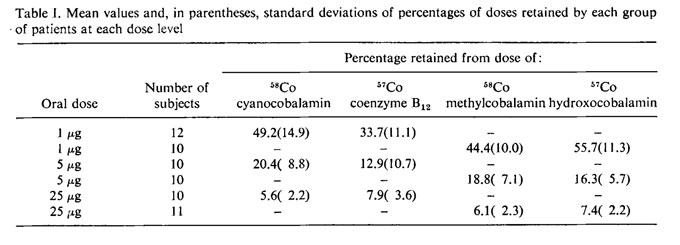
Note: µg = microgram, mg=milligram (1 milligram=1,000 micrograms)
✓ Click here to check out this Organic VeganSafe B12
In this research, methylcobalamin performs well at low doses, but is outperformed by cyanocobalamin at high doses, suggesting that if you take a weekly or monthly dose, cyanocobalamin might be a better option.
However, a 2017 study reported
Supplementing with any of the nature bioidentical forms of B12 (MeCbl, OHCbl, and/or AdCbl) is preferred instead of the use of CNCbl, owing to their superior bioavailability and safety.
And
Most multivitamins and B-complex formulas available on the market contain B12 in the form of MeCbl, because it is the least costly form of natural B12 at this time. No reason exists to use other forms of B12 for supporting foundational needs for B12, because the majority of individuals are likely able to metabolize it properly. [5]
Regardless, researchers question the stability of the co-enzyme supplements in their oral form (unsure how much is absorbed, and also how affected the supplement is by environmental supplements), and therefore usually recommend doses above 1,000 µg/day.
On that note: Make sure you keep your methylcobalamin in a cool, dark place (see the instructions on the bottle to make sure you store optimally).
A 2011 clinical trial from Korea supports the efficacy of methylcobalamin. This trial was conducted on cancer patients with vitamin B12 malabsorption, which suggests that for most people 1,500 µg/day would be more than enough. Unfortunately we don't have a comparison group for cyanocobalamin. [6]
1,500 µg/day of methylcobalamin was effective at increasing vitamin B12 levels.
Cyanocobalamin may perform better at high doses, but a 2017 study suggests that methylcobalamin is preferred due to its superior bioavailability. Adults might choose to take 1000-1,500 µg/day of methylcobalamin to ensure optimal B12 levels.
Why is Methylcobalamin More Expensive?
The short answer is because it is the natural form, and the synthetic form, cyanocobalamin, is much cheaper to produce.
Methylcobalamin also tends to come in sprays flavoured with natural fruit extracts, too, which of course adds to the price.
The benefit of methylcobalamin is the absence of cyanide – which isn't thought to be of a harmful level, but may affect retention in some.
Methylcobalamin also acts faster in the body. Cyanocobalamin has to be converted, which can take up to 48 hours.
But in terms of increasing B12 levels, cyanocobalamin performs just as well in trials.
How Much B12 Should I Take & How?
The recommended dietary allowance (RDA) for adults is 2.4 micrograms (mcg/ug) a day. (Women who are pregnant or breastfeeding need more.)
People at risk for deficiency probably will benefit from more than 2.4 mcg/ug. There's no official upper limit for B12 intake so toxicity or overdoing is not a concern.
You'll notice that the majority of supplements state huge amounts per dose, way over the RDA.
That's because you'll only actually ingest around 1% of the dose, so it is advised that you do not take a supplement that is less than 500 ug per dose. I personally take 1,000-1,500 ug per day.
You can take B12 daily or weekly, depending on the dose of the supplement. I take between 1,000-1,500 ug daily. Though you could take a 10,000 ug dose that would see you through the week.
Pills, Sprays, Drops
Most people say that taking B12 sublingually is the best way, which means under the tongue.
Sublingual B12 pills are generally more expensive than the capsules, but evidence suggests both methods work.
A study comparing the sublingual and oral administration of 500 micro g of cobalamin concluded:
A dose of 500 micro g of cobalamin given either sublingually or orally is effective in correcting cobalamin deficiency. [7]
Sublingual pills dissolve under your tongue, so it gets into your system quicker than going through the digestive tract.
The way to take a sublingual tablet is to just put the pill under your tongue and wait. Some dissolve quicker than others.
Sprays and drops can also be placed under the tongue.
Note that some sublinguals have added sugars in them to allow them to dissolve faster. Some contain sugar substitutes such as sorbitol, mannitol or sucralose, which can cause gastrointestinal symptoms in some people. Check the ingredients and try to go “natural” where possible.
In my experience, sprays and drops are faster to take and effective: my B12 levels are usually around 600+ ng/L.
I look for the best B12 possible, meaning organic ingredients and no chemicals, which is why Global Healing's VeganSafe B12 is a popular choice.
The GHC B12 is organic and contains contains methylcobalamin and adenosylcobalamin, the two naturally bioactive forms of vitamin B-12. So if you have any concerns about your body's ability to convert methylcobalamin to adenosylcobalamin, this is a great choice for you.
Being in the UK, this costs me a fair bit to get hold of the GHC brand, so it tends to be a treat once in a while. When I'm not flush for cash, I use the myKind Organics methylcobalamin instead.
In Conclusion
If you think you are suffering from the effects of vitamin B12 deficiency, then you should make an appointment and discuss the matter with your doctor as soon as possible. You can get a blood test that will tell you if you are deficient.
If that is the case, the doctor will most likely recommend a B12 injection and supplementation.
However, if you are looking for a nutritional solution to supplement your diet, both a methylcobalamin or cyanocobalamin supplement will work for you.
On the balance of scientific evidence, the body may absorb cyanocobalamin better, but methylcobalamin is generally thought to have better retention rate because of its bioavailability. It also comes without any toxicity.
In addition, methylcobalamin comes with a valuable methyl group that may have additional health benefits.
In my opinion, the average person in good health won't go wrong with either. Getting more B12 can never be a bad thing.
Article References:
1. Kelly, N.D., G. (1997). The Coenzyme Forms of Vitamin B12: Toward an Understanding of their Therapeutic Potential. Retrieved from
http://www.anaturalhealingcenter.com/documents/Thorne/articles/CoEnzymeB12.pdf
2. Donald, M. S. (2000). Metabolic vitamin B12 status on a mostly raw vegan diet with follow-up using tablets, nutritional yeast, or probiotic supplements. Annals of Nutrition and Metabolism, 44(5–6), 229–34.
3. K, T., & G, B. (2014). Treatment of vitamin B12 deficiency-methylcobalamine? Cyancobalamine? Hydroxocobalamin?-clearing the confusion. PubMed.Gov. Retrieved from https://www.ncbi.nlm.nih.gov/pubmed/25117994/.
4. Adams, J. F., Ross, S. K., Mervyn, L., Body, K., & King, P. (1971). Absorption of Cyanocobalamin, Coenzyme B12, Methylcobalamin, and Hydroxocobalamin at Different Dose Levels. Scandinavian Journal of Gastroenterology, Issue 3. Retrieved from https://www.tandfonline.com/doi/abs/10.3109/00365527109180702.
5. Paul, C., & Brady, D. M. (2017). Comparative Bioavailability and Utilization of Particular Forms of B12 Supplements With Potential to Mitigate B12-related Genetic Polymorphisms. PubMed. Retrieved from https://www.ncbi.nlm.nih.gov/pubmed/28223907.
6. Kim, H. I., Hyung, W. J., Song, K. J., Choy, S. H., Kim, C. B., & Noh, S. H. (2011). Oral vitamin B12 replacement: an effective treatment for vitamin B12 deficiency after total gastrectomy in gastric cancer patients. PubMed. Retrieved from https://www.ncbi.nlm.nih.gov/pubmed/21556950.
7. Sharabi A, A., & Al, E. (2003). Replacement therapy for vitamin B12 deficiency: comparison between the sublingual and oral route. PubMed. Retrieved from https://www.ncbi.nlm.nih.gov/m/pubmed/14616423/.
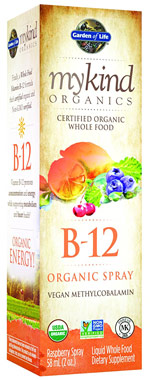
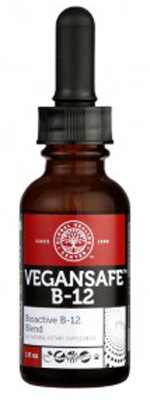

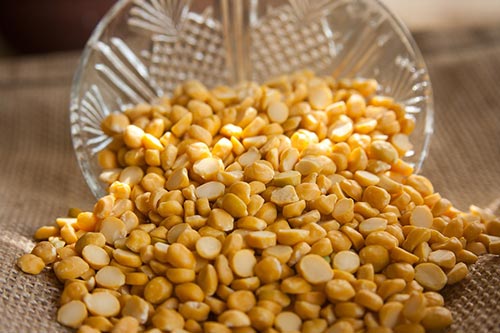
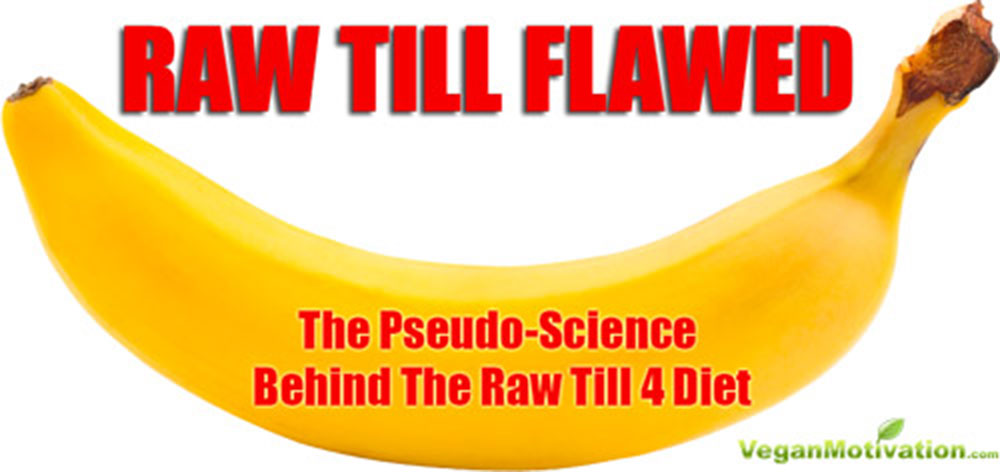

I was concerned about the toxic cyanide group in cyanocobalamin, but it appears the small amounts in supplements aren’t a concern in healthy people. Great article!
Feb 15, 2020 at 5:03 pm
Yes. I have researched thoroughly and can’t find anything to support that taking B12 cyanocobalamin is an issue. it’s really a personal preference in the end. Some people might do better on one form or the other.
Feb 15, 2020 at 5:32 pm
Hello! Thank you for sharing this information! You wrote, “The natural forms, methylcobalamin and adenosylcobalamin can inter convert, so taking methylcobalamin will also ensure you get adenosylcobalamin (unless you have a specific health-related conversion issue. For the average person, both forms will be effective.” Can you tell us more about what the specific health-related conversion issues would be in those cases? Are they related to particular genes, or…?
Jan 18, 2020 at 12:43 pm
Genetic conditions cblA, cblB, cblmut, cblC, cblD, cblE, cblF. If you look up Methylmalonic Aciduria that will point you in the direction of these genetic conditions and b12 synthesis.
Feb 20, 2020 at 10:30 pm
lol, Think I am more confused. I have taken both the CY version and the ME Version of B12. Am I crazy to think I felt better on the CY version which is man made one?
I used it for years when my doctor put me on it. I switched because I read the M version was already to work and would be better,
but to me I just felt better taking the cheap shots. Is that weird?
My whole family has an absorption problem with b vitamins. So we seem to have it in our blood stream but our bodies does nothing with it. I think I am explaining it right. within a week of being on the CY version I felt like a human. 🙂
Jan 16, 2020 at 9:34 pm
Hi Helen, if you felt better taking the CY over the ME then that’s great. As long as your doctor confirms your B12 level is normal then keep taking it. The main thing is that you are meeting your B12 requirement.
Jan 16, 2020 at 9:40 pm
Dear Sir,
Please confirm me that what is difference between 1 MCG Cynocobalamine and 1 MCG Methylcobalamine.
Dec 19, 2019 at 12:44 pm
Thanks a lot for this, I bought methylcobalamin for getting in B12, but kept reading I NEED adenosylcobalamin with it… But this is not true since they can convert in each other. It is OPTIMAL to take both, but not NECESSARY, right? You CAN fix a B12 deficiency with just methylcobalamin, right? It might take longer than when taking the combination, but methyl only can do the job for sure right?
Mar 21, 2019 at 10:24 am
Yes, methylcobalamin and adenosylcobalamin can inter convert. If you have a diagnosed deficiency then the doctor will advise you on the best course of supplementation to get you up to par. That might be a combination of MeCbl and AdCbl, or hydroxocobalamin or Cbl. If you just want a daily supplement to optimise your B12 level then methylcobalamin or cyanocobalamin will be fine. Because of our over sanitized and industrial food chain, everyone will benefit from an increase in B12.
Mar 21, 2019 at 10:46 am
I had a major bad reaction to Hydroxocobalamin, after taking cyano for years with no problems… nasty anxiety, almost panic attack level… and it messed up my stomach big time… bloating/distension, nausea, an overall feeling of being VERY unwell… still feeling some of the effects 2+ weeks later…
I do not do well with any methylated form of supplement… tried methylfolate a long time ago, but remember it gave me bad side effects too… I have not been tested for MTHFR… probably should
I read that Hydroxo bad side effects can cause a B12 deficiency… so I am going to try some cyano, hopefully get me back to “normal”…
Aug 06, 2018 at 6:18 pm
How did you get on, any update?
Nov 09, 2018 at 7:32 pm
Not sure if you are talking to me… but IF you are… the side effects of my bad reaction to Hydroxo eased… I later found out that it very well could have been my “addiction” to Trident sugar-free gum… around 10-20 pieces daily… and the sorbitol in it may well be responsible for many of my abdominal complaints… that said, the reaction to Hydroxo B12 was very real and very nasty! I have been off the gum for only 4-5 days… getting better, but slowly. Skoal!
Nov 10, 2018 at 3:28 am
I was 🙂
The gum is most certainly to blame. “Sugar-free gum can cause stomach pain because you naturally swallow a lot of air while chewing gum, and because of the sugar alcohols that are not well-absorbed or digested by the body.
Did you try the cyno B12 instead?
Nov 10, 2018 at 8:53 pm
Yes, I agree! Wish I knew that years ago! I think it sort of accumulated and finally caused a major IBS problem… hope it gets better soon… I read somewhere it takes around 2 weeks to resolve…
Yes, Cyano gives me no problems, but talked the Doc into a B12 blood test and my levels were on the high side of normal… so am not taking anything but a B-Complex occasionally.
Nov 10, 2018 at 9:40 pm
Thank you. Very helpful!
Jul 07, 2018 at 6:48 pm
No worries. Cheers David.
Jul 07, 2018 at 9:08 pm